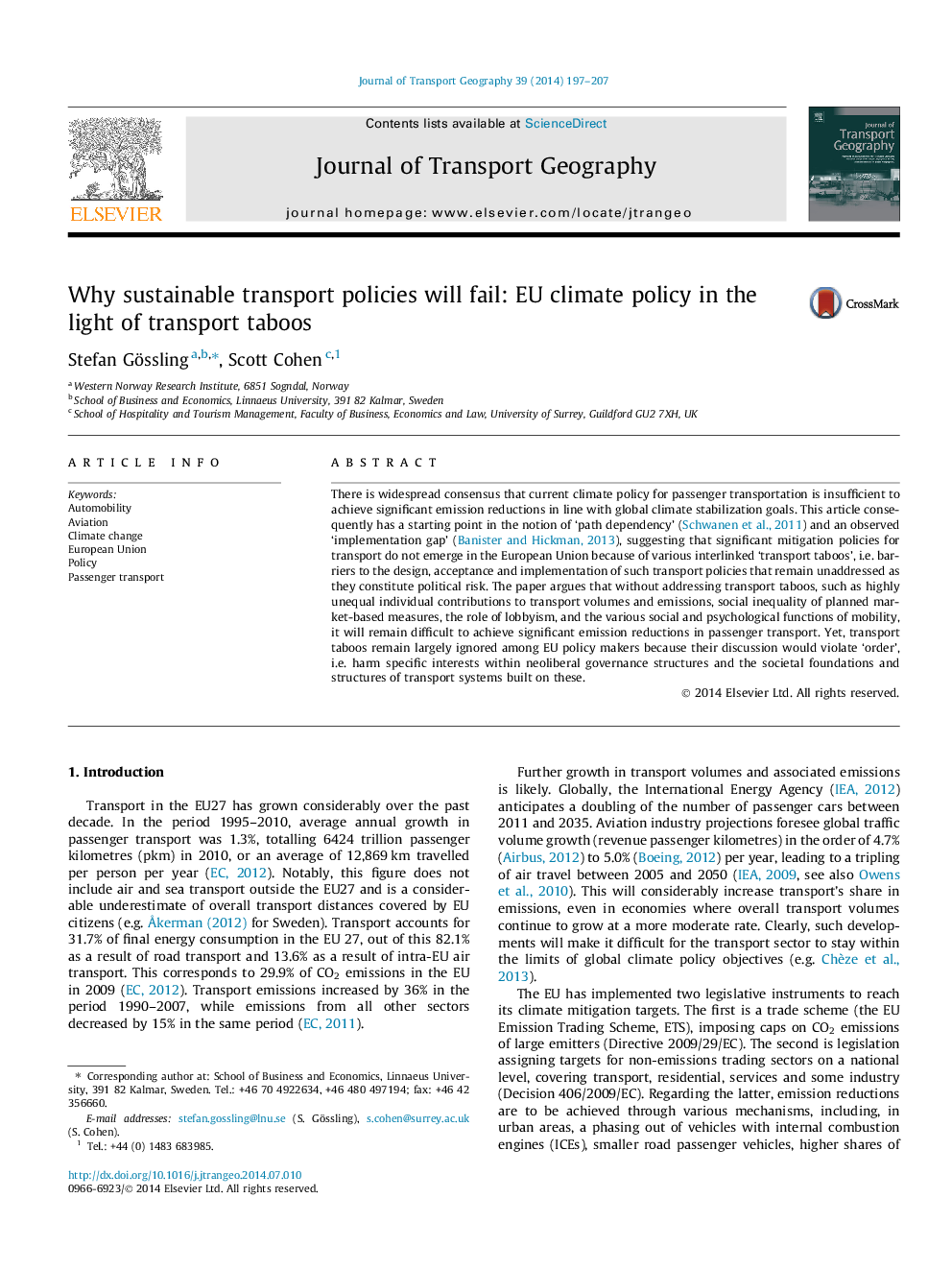| Article ID | Journal | Published Year | Pages | File Type |
|---|---|---|---|---|
| 1059209 | Journal of Transport Geography | 2014 | 11 Pages |
•EU climate transport policy is insufficient to achieve significant emission reductions.•Various obstacles to design, acceptance and implementation of transport policies exist.•These constitute ‘transport taboos’, i.e. key barriers to sustainable transport policies.•To address taboos requires re-thinking of neoliberal governance and societal structures.
There is widespread consensus that current climate policy for passenger transportation is insufficient to achieve significant emission reductions in line with global climate stabilization goals. This article consequently has a starting point in the notion of ‘path dependency’ (Schwanen et al., 2011) and an observed ‘implementation gap’ (Banister and Hickman, 2013), suggesting that significant mitigation policies for transport do not emerge in the European Union because of various interlinked ‘transport taboos’, i.e. barriers to the design, acceptance and implementation of such transport policies that remain unaddressed as they constitute political risk. The paper argues that without addressing transport taboos, such as highly unequal individual contributions to transport volumes and emissions, social inequality of planned market-based measures, the role of lobbyism, and the various social and psychological functions of mobility, it will remain difficult to achieve significant emission reductions in passenger transport. Yet, transport taboos remain largely ignored among EU policy makers because their discussion would violate ‘order’, i.e. harm specific interests within neoliberal governance structures and the societal foundations and structures of transport systems built on these.
